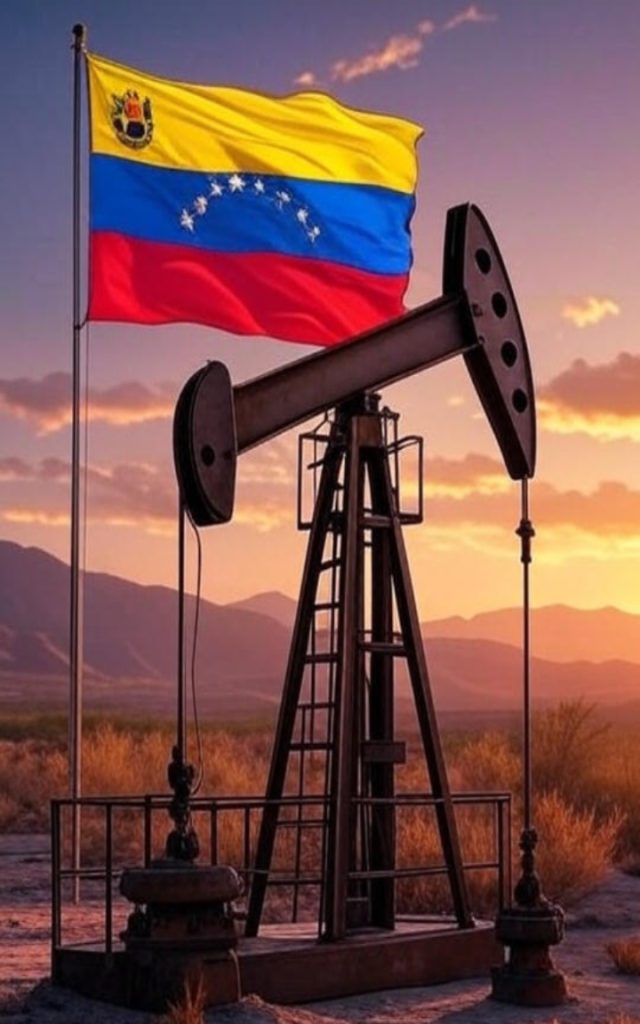Following US raids on Iranian nuclear sites, concerns about the Strait of Hormuz’s closure have grown. Over 20% of the world’s oil passes through this important chokepoint; thus, any disruption might have global consequences.
In an interview with Invezz, Aldo Contreras, a Venezuelan specialist in International Economic Relations and Former President of the Táchira College of Economists, discussed how such a scenario may impact global oil markets, Venezuela’s strategic position, and the broader Latin American economic landscape.
An energy lifeline under pressure
According to a report from the US Energy Information Administration, in 2022, Hormuz Strait daily oil flow averaged 21 million barrels (b/d), accounting for approximately 21% of global petroleum consumption.
In the first quarter of 2023, the total flow of petroleum via the Ormuz Strait remained relatively stable compared to 2022.
Invezz: How could the closure of the Strait of Hormuz impact international oil prices, and what would this mean for oil-exporting economies like Venezuela?
The Strait of Hormuz is a vital artery for global energy, carrying over 21 million barrels per day—roughly 21% of global petroleum consumption.
We may not yet be seeing a dramatic price spike, but if the threat becomes real, oil could easily climb to $100 per barrel or more.
For oil exporters like Venezuela, that price surge could provide a temporary financial boost. Even with the exit of major players like Chevron and Repsol, Venezuela continues to produce over one million barrels per day, according to secondary sources. That volume, in current market dynamics, could yield higher revenues if prices rise.
The Venezuelan oil trade generally takes place in grey, untraceable, and untransparent markets. That opacity complicates how much of the price benefit is captured.
Hormuz’s administration involves multiple countries, and its multinational nature hinders any attempt at unilateral control or disruption.
However, the mere prospect of closure has already cast a lengthy shadow over oil futures.
Such a jump would put a burden on global supply systems, particularly in Qatar and the UAE, which rely significantly on uninterrupted passage via the Strait of Hormuz.
Ironically, despite its proximity, Iran would be affected by the stoppage, as its crude also goes across the same Strait.
Winners, losers, and the Venezuelan equation
However, against the backdrop of this unrest, which threatens to spike prices, for some oil producers, it probably translates into benefits of the moment.
Venezuela, for example, may reap temporary economic gains, regardless of existing sanctions pressures.
Invezz: Given Venezuela’s partial isolation from international markets, could this crisis present new opportunities or challenges for the country’s energy trade?
Geographically, Venezuela is less exposed to disruptions in the Strait of Hormuz thanks to its access to the Pacific through the Panama Canal,” he said. “Oil is moved by sea, and Venezuela has multiple maritime outlets.
Still, Venezuela’s energy commerce operates outside traditional structures, which can limit strategic opportunities.
Venezuela indeed has flexibility, but the benefits are filtered through opaque trade channels, and that reduces leverage.
The country’s support for Iran in the current crisis may also shape future opportunities.
On Sunday, Venezuela’s Defence Minister Vladimir Padrino López said, “What is happening in the Middle East is undeniably an imperialist war. It is a Zionist war(…), the US is behind it.” He also suggested Venezuela could step in as an energy supplier to the West if the crisis worsens.
Sanctions, BRICS, and a new economic order
Venezuela wanted to join the BRICS last year, but its petition was denied by Brazil, which opposed its membership.
This was viewed by Venezuela as a means of securing new cash for a catastrophic economic crisis and political coalitions following a closely contested presidential election. Also, BRICS are viewed as an alternative to established markets and a means of avoiding the dollar as the primary trading currency.
Invezz: Is there a risk that sanctions or diplomatic alignments resulting from this conflict could further restrict Venezuela’s ability to trade oil, or could the country benefit from a more volatile global environment?
The outcome depends on how alliances shift in the next few days. Venezuela and Iran are long-standing allies, and both are deeply sanctioned. Their cooperation has evolved into survival strategies involving non-traditional distribution channels and closer alignment with blocs like BRICS+.
There are over 30 cooperation agreements between Venezuela and Iran. They’ve developed shared playbooks under sanctions, including alternative financial systems and digital currencies.
Global volatility could go either way: While rising prices may benefit Venezuela in the short term, a deeper alignment with sanctioned states could lead to more isolation depending on how the US and Europe respond diplomatically.
A broader transformation is underway. Since January 20, with the return of Trump to power and the BRICS+ expansion, we’re seeing the contours of a new global order take shape.
This year is shaping up to be the year of realignment. By 2026, we may see a new economic architecture, less dollar-dominated, more fragmented in energy and trade.
Global stakes in a tense scenario
Currently, the Strait of Hormuz is still open. However, as Contreras states, “for the next twenty-four hours,” it will be a critical deciding factor for the future of Hormuz, and by extension, the state of the world energy markets.
Where in the world the brink of war is resolved or mitigated, it will make a difference to oil prices, but it will also be a stake in the strategic futures of countries like Venezuela.
Geography insulates Venezuela from any immediate logistical shock, but the impact depends on the response of its allies, partners and markets. The choices we make today will define the shape of the world economy tomorrow.
The post Interview: Venezuela’s oil outlook amid Hormuz tensions: economist Aldo Contreras weighs in appeared first on Invezz

